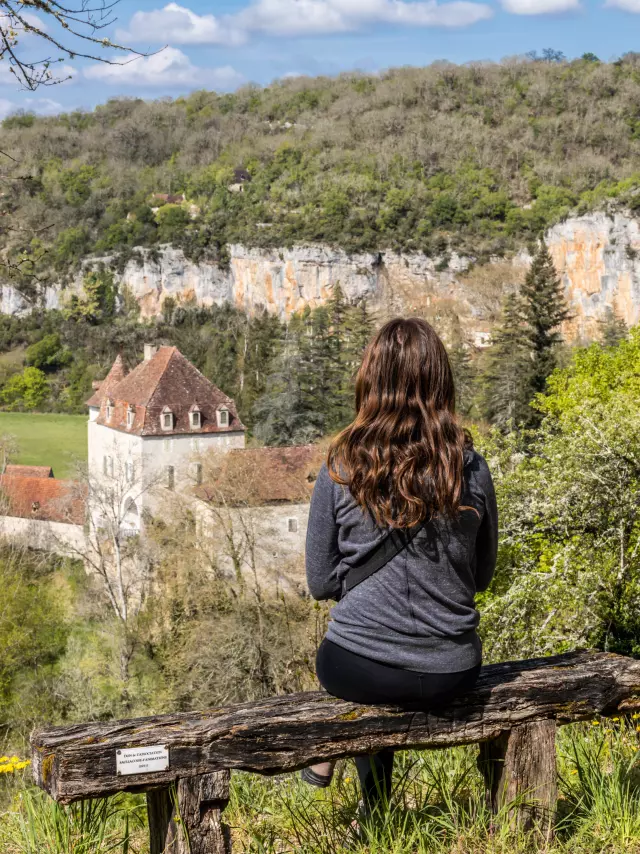 Contemplating the Château de Sauliac
Contemplating the Château de Sauliac Contemplating the Château de Sauliac
Contemplating the Château de Sauliac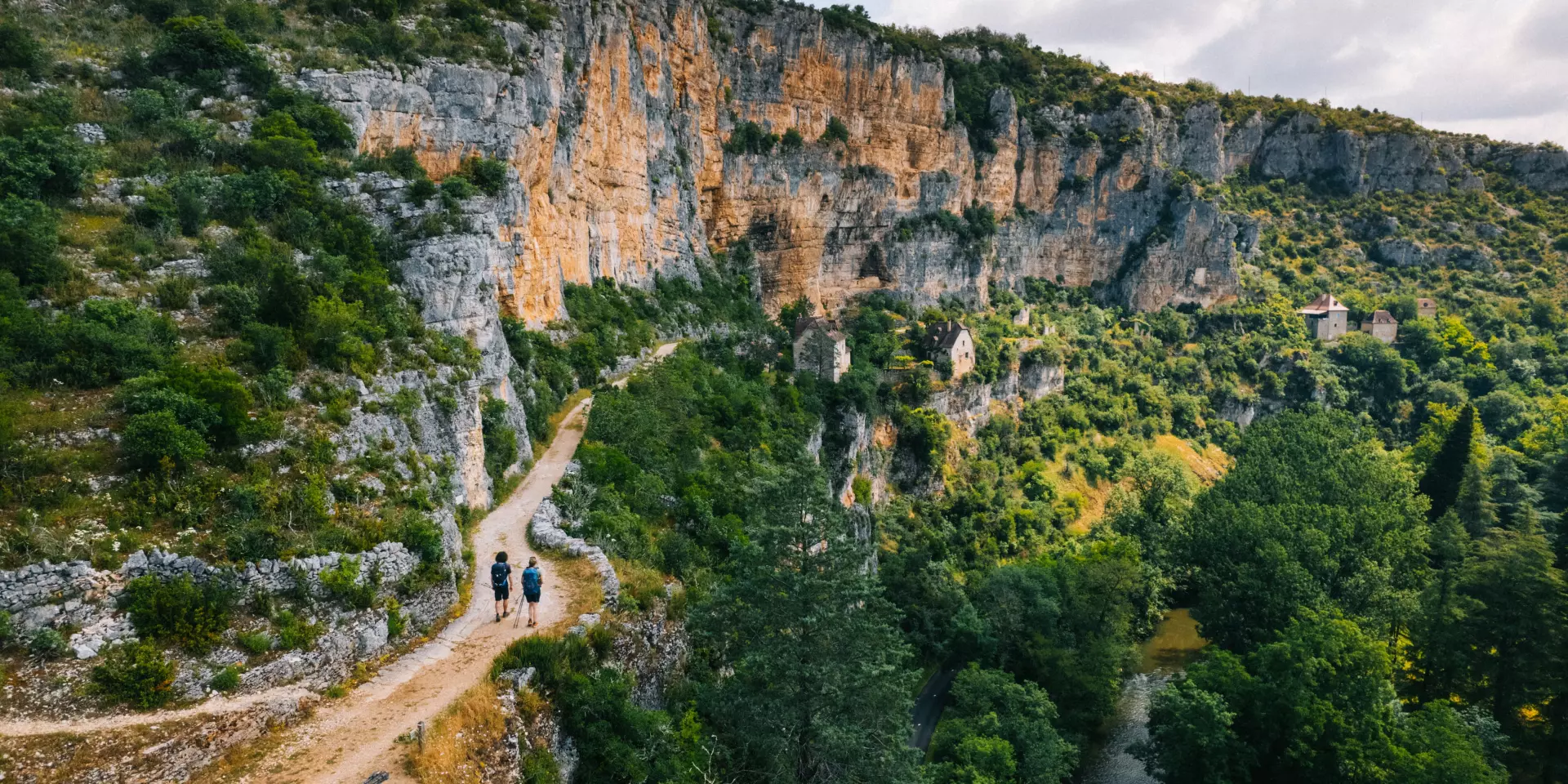 230531115056 Chemin De La Viste Vieux Sauliac Via Caus Mos Clara Ferrand Wildroad2
230531115056 Chemin De La Viste Vieux Sauliac Via Caus Mos Clara Ferrand Wildroad2 Contemplating the Château de Sauliac
Contemplating the Château de SauliacEven before exploring the authentic charm of old Sauliac, we let ourselves be carried away by the ascent of a wild path in the heart of vegetation typical of the Causses du Quercy. Low dry-stone walls, lined with boxwood, accompany our stroll, whispering ancient tales of this mysterious land. The path is picturesque, with a few lizards basking in the sun and the birds lulling us with their songs. Time seems to stand still in the midst of this omnipresent nature, guiding us to the summit where the Pierre-Levée dolmen is revealed.
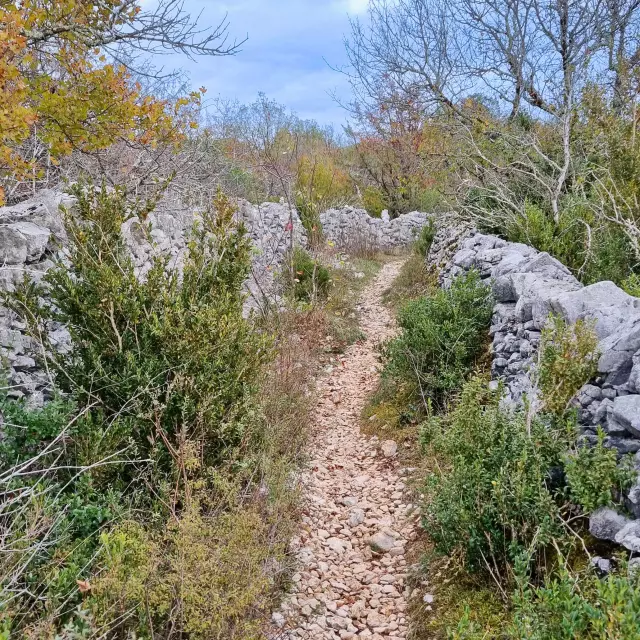 Pierre Levee Sauliac 153 Otgf N. Andrieu
Pierre Levee Sauliac 153 Otgf N. Andrieu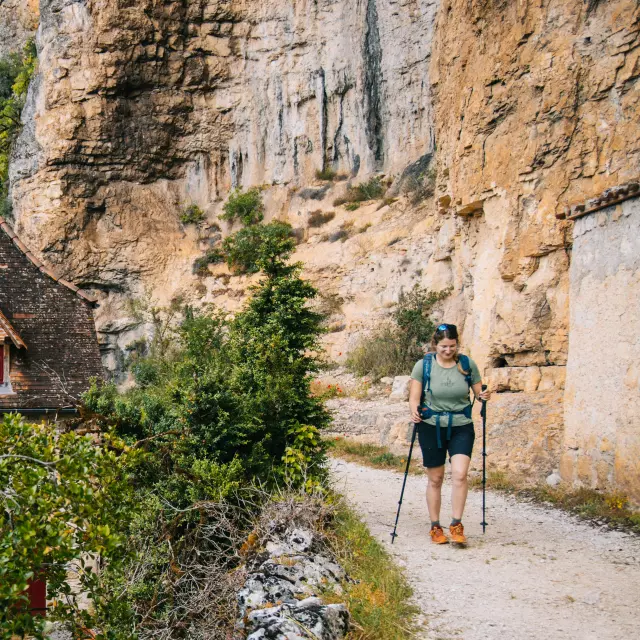 230531110859 Chemin De La Viste Vieux Sauliac Via Caus Mos Clara Ferrand Wildroad21
230531110859 Chemin De La Viste Vieux Sauliac Via Caus Mos Clara Ferrand Wildroad21Guided by the graceful ballet of butterflies that seem to accompany us, we retrace our steps towards Sauliac. Here we are on the GR®651, the emblematic Célé route popular with hikers and pilgrims alike, on the way to Santiago de Compostela. The rocky path winds its way through the forest of Montpellieroaks and maples. Around a bend, new relics of the past emerge: an ancient shepherd’s barn in ruins and a typical caselle, a symbol of the Quercy region. Here and there, sublime wild orchids captivate our gaze, revealing the richness of the causse’s preserved biodiversity. Further on, in the shade of the trees, an enclosure shelters a group of dry-stone huts, a vibrant testimony to ancestral know-how. As we make our way along the downhill path, the verdant valley gradually unfolds before our amazed eyes, promising the highlight of our walk!
Here we are, suspended between the clouds and terra firma, on a cornice trail along amajestic cliff that seems to caress the sky. The views of the river and old Sauliac, a veritable semi-troglodytic gem, are spectacular! The houses perched on the cliff face are impressive, while the Château de Géniez stands proudly beside the river. We even discover a cowshed cave. As we approach the end of our walk, we’ve only got a few hundred meters left on the old road to cross the ancestral village, which had around 90 inhabitants in 1836. An unforgettable walk!
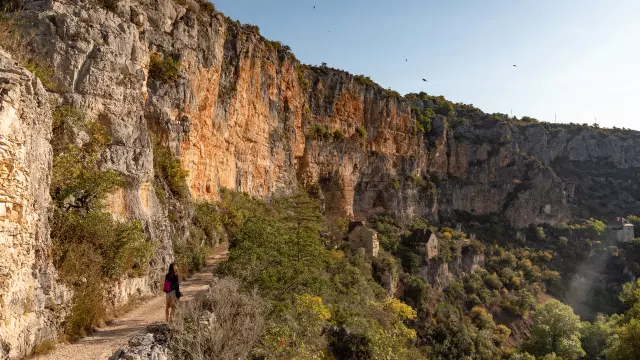
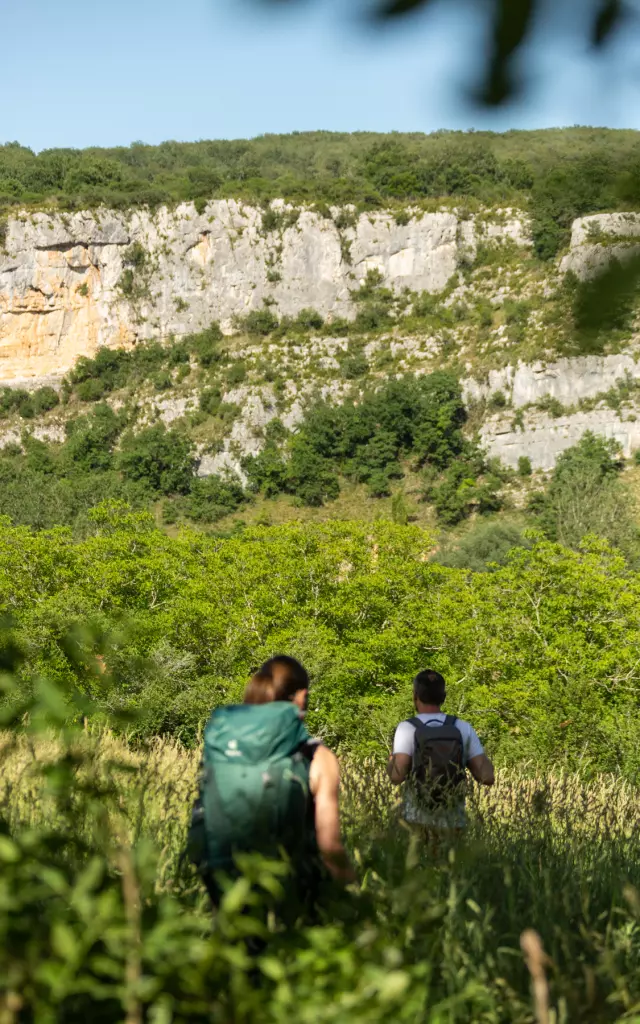
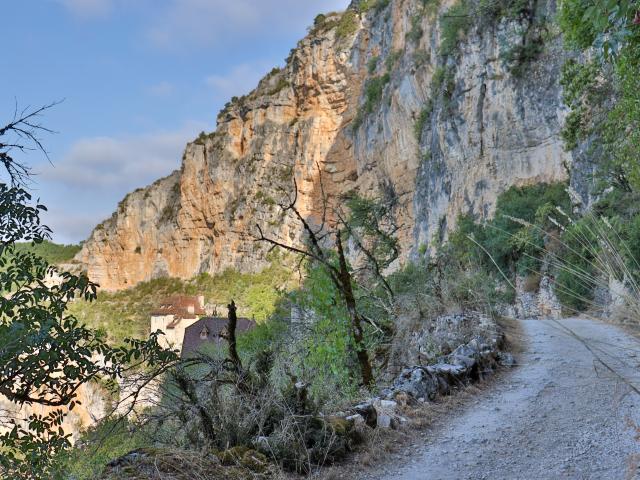
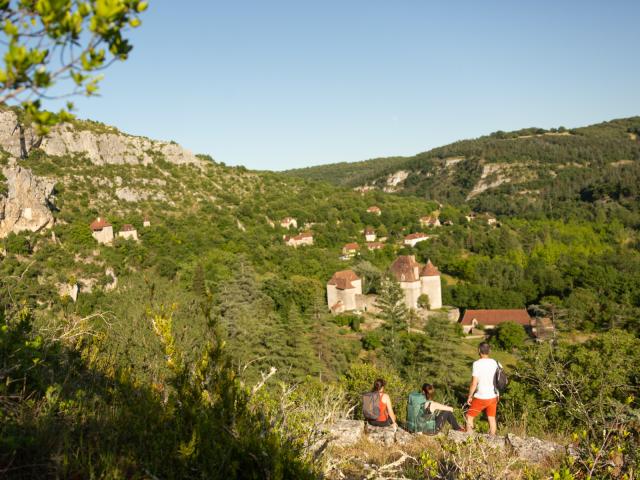 Panorama on the castle of Geniez, Célé valley
Panorama on the castle of Geniez, Célé valleyThis last section of the trail is also a Natura 2000 site, a crucial protection zone for the swallows that nest here in large numbers, but above all for the bats. Preservation measures have been put in place to protect these valuable species.